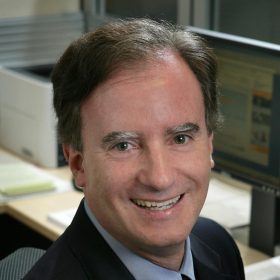What were your favorite philosophy courses at UCLA?
Ethics
Are there any philosophical issues, readings, or topics that have stayed with you since graduation?
Yes. I think often about determinism versus free will. Also questions of ethics/moral philosophy, such as how much one should help the poor, give to charity (and to which ones), etc.
Have you read any philosophy recently that you would recommend?
A recent book, “Better Living Through Criticism: How to Think About Art, Pleasure, Beauty, and Truth,” by New York Times film critic A.O.Scott is not really a work of philosophy, but includes, almost as an aside, what I think is the correct answer to the timeless question of determinism versus free will. His answer is that we make choices all the time, but our choices are (somewhat) constrained by our life circumstances. The book includes other interesting insights about beauty, truth and the role of a critic.
What was your first job or endeavor after UCLA?
I was a newspaper reporter in San Bernardino County right after I graduated, before working in UCLA’s Media Relations office, where I have worked for the last 35 years. In recent years, my job has been to communicate/publicize the sciences and UCLA faculty in the life sciences and physical sciences.
What lessons or skills from philosophy do you use in your career?
I frequently draw on what I learned in my UCLA philosophy courses. For me, the most important lesson was to accept no conclusion at face value, and to first closely analyze evidence to see whether a conclusion is justified/accurate. Question, question, question: does what you are hearing/reading make sense? Is it right?
Do you have advice for current students or recent graduates about how to take advantage of and continue their philosophical education?
Nothing specific. Just to think and question.


